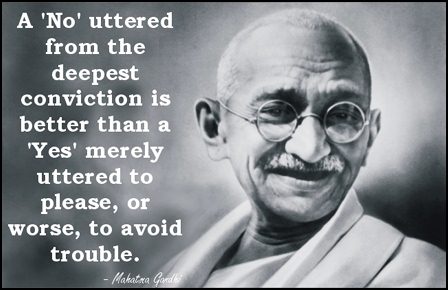
You’re at midlife – and you’ve got challenges. Now is the ideal time to learn how to find lasting happiness.
You’re busy making a living, keeping up with a family, and trying to stay ahead in this crazy, digital age.
If you’ve been working hard at living, chances are that you’ve found a place for yourself in the world, even though it may be an imperfect place.
And, you’ve found your fair share of stress as well. Your relationships can be complicated. You may be overwhelmed with how much you’ve got going on.
You may even be wondering if there is more to life than what you’ve managed to accomplish so far.
Worse, as midlife progresses, doing what you’ve always done to solve problems doesn’t necessarily bring you lasting satisfaction and fulfillment – not anymore.
Not for the special class of challenges that mid-lifers face. In fact, what you’ve always done to be successful may even backfire and create a sense of hopelessness and frustration.
When you find what you really need in your current stage of life, you’ve unlocked an important key to your happiness and continued growth.
 The key insight for how to find lasting happiness…
The key insight for how to find lasting happiness…
If there’s one thing every developmental theorist agrees on, it is this: Growth happens in identifiable stages. Different stages of life require different approaches to personal development and happiness.
What once worked to create satisfaction at an earlier stage of life DOES NOT necessarily apply to stages that follow. And this is where most people screw up. So, here’s my take on what mid-lifers can focus on to embrace lasting happiness.
10 things mid-lifers need to do to find happiness
1. Rethink winning
In early adulthood, being competitive served you well. It got you the grades, job or business, husband or wife. Competing and winning was a critical to establishing yourself in the world.
While doing your best will always be important, it may be time to let go of the attitude that says you must be better than others or win at all costs.
At this point, if you’ve competed and won a place in the adult world, you can afford to rethink winning because you’ve already won. And you paid a price in stress for that win. Isn’t it time to let go of all the pressure?
Instead of winning, think contribute. You are here to make a valuable contribution – not necessarily to beat other people.
Compare these statements:
I will make my best contribution and allow others to do the same.
vs.
I will do better than everyone else and win the day!
Neither attitude is wrong. But one is more appropriate for a younger adult who has something to prove. At this point you deserve the peace of mind that comes with knowing that you have a unique contribution to make – and that’s all you need to do.
Make that contribution and stop worrying about crushing other people with your brilliance. It will bring you a lot less pressure and more satisfaction as you move forward.
 2. Stop the comparisons
2. Stop the comparisons
Obsessively comparing yourself to other people is a common habit of 20-somethings that are worried about their place in the world. It’s probably unavoidable.
When you’re young, you lack experience. You’re learning who you are and worried about measuring up. You need to look around a lot and compare yourself to others.
Of course, this causes a fair share of anxiety. Again, probably unavoidable. You just need to press on, prove to yourself that you have what it takes and learn to manage your fears.
At mid-life – if you’ve paid your dues – you’ve actually proven a lot. And now it’s time to let go of the fear of measuring up. Focus on your unique gifts and talents and allow others the luxury of theirs, without worrying about whose talents are better. Without needing to prove anything.
Focus on enjoying yourself and doing something that you find meaningful.
Check out what Nancy Anderson of BoomerCafe has to say:
After reading hundreds of boomers’ autobiographies over the past three decades, I’ve concluded that life is a story that needs to be rewritten in midlife to reflect the desires of the authentic self. This means, the personality that emerges in our early forties, when material goals are not as important as finding answers to questions of ultimate concern: who am I, why am I here, and what should I do with the rest of my life? By contrast, when we are younger, we need to go for the personal gold, experiment with many options, try on different personas, and compete with peers for status and recognition. (emphasis added)
3. Go for self-expression, not approval
Of course, youngsters don’t like to admit it (I never did) but they crave recognition and approval. Not having the life experience and personal depth that is possible 20 years later, young adults tend to look outside themselves to know that they are OK.

It’s time to turn the tables on this one. If you’re at midlife or beyond, then there is no one better to approve of you than YOU.
Focus on becoming aware of your thoughts, opinions and feelings. Express them maturely. And let the chips fall where they may. This is when the magic happens.
Here’s why. When expressing yourself takes priority over pleasing others, the universe hands you a remarkable gift.
Some people will approve. Some will disapprove. Some will love you. Some will ignore or dislike you. You want all of this because it is the only real way to find people with whom you can just be yourself and not worry about approval.
And this is the gift – being yourself in the company of people who can handle it. This is the gateway into genuine, authentic relationships.
The alternative is to continue moderating your thoughts and feelings, bent on positioning yourself in just the right way so that other people will like you (or so you suppose). The problem is, who are they liking? They are only getting the façade version of you, so it is impossible to embrace any approval you may get.
4. Discover your values
The key to being fulfilled and effective at any stage in life is to know and live your personal values. This is particularly important at midlife because this is when you are most capable of truly embracing your values.
What’s most important to you in life? The deep answer to this question reveals your values. And you can’t really value everything that sounds good and back it with action. You’re just one person, after all.
So what makes it to your list of core values? Health, prosperity, freedom, security, peace of mind, friendship, clarity, balance…what?
Knowing your bottom line values should be the basis of your major decisions. Otherwise, you will drift in the wind of popular opinion and somehow miss out on the fulfillment that comes with knowing and doing what is right for you.
The key to discovering your values is to get beyond what you think they should be and discover what they are, deep down. For most people, this requires more than merely taking out a piece of paper and writing down the words that come to your conscious mind.
You’ve got to go deep on this one.
I do a simple process with my clients that removes them from their surface desires and present circumstance and penetrates into their deeper longings in life. In this unusual context, I learn and record what their unconscious mind finds to be most meaningful.
Sorry, I can’t describe it here (but it is not hypnosis) because if you know how and why the process works ahead of time, your conscious mind will interfere if anyone ever does it with you. This process is a one-time shot that really nails your values in surprising ways.
5. Curb the materialism
In our youth, getting stuff may have served as a way to boost our status and tickle our ego. Good for us! We sought for evidence of our worthiness in external things and hopefully allowed that to run its course.

Long-term materialism is NOT a good strategy for happiness. Research supports this one.
In fact, materialism, for many, may be an unconscious self-deprivation scheme. It always amazes me that so often people (including me) obsessively seek after things that don’t offer lasting fulfillment.
We go for the car, house, clothing, accessories, gadgets and toys that titillate us momentarily, then….that’s it. When we put our eggs in the temporary titillation basket, we end up feeling empty.
“Stuff” is to be appreciated for what it is and enjoyed, right? Yet, when you invest in stuff as your primary means of happiness, it will fail you miserably.
6. Honor authority
Is it time to give up resisting authority? If you’re approaching mid-life or beyond, then the right answer is an unqualified YES.
If you have a legitimate authority in your life, then you’ve agreed to that. You have a job or a role that requires someone to make higher level approvals and give direction. Ok, great. What’s the problem?
There are several benefits to simply allowing those in authoritative roles to just do their job:
• You get to relax and just play your role
• You can focus on simply doing your best
• You earn the trust of those with more power in any organization
• The clarity of knowing your role takes pressure off
• You can take full responsibility for yourself
Isn’t it time to let go of the struggle to prove you are better, smarter and more capable of those with more authority than you?
Interestingly, when you give up this chase, your natural talents can speak for themselves and THIS is the key to rising in authority.
7. Embrace your limitations
Who wants to hear about limitations? Not many people. Limitations, however are the key to personal freedom.
The man with insight enough to admit his limitations comes nearest to perfection.
Johann Wolfgang von Goethe
At midlife, you are in a position to free yourself from the illusion that you are all the all-powerful genie that you once fantasized that you were.
The reason to embrace your limitations is a stunning paradox: When you embrace limitations, you set yourself free.
When I was a young mental health counselor with a lot to prove, I liked to think I could handle anything sent my way. No matter the complication, I could handle it. Drug or sex addiction? Bring it on. Multiple personalities? I’m your guy. I did it all.
At age 24, I worked with retirees who were looking for more meaning and to leave their legacy. I worked with people who were struggling with midlife crises. I worked with couples who were considering divorce after 20+ years of marriage.
After about five years, I learned the most valuable lesson in my career. It was this: I’m really effective with certain kinds of people. And there are some cases I am not skilled or experienced enough to handle.
I slowly accepted that I was not the right guy for many kinds of cases. As I began to refer on people that I believed I could not serve adequately, my practice soared because I made room only for people I could be successful with.
And I felt freer and more comfortable than ever. There is such a feeling of emotional safety that comes with knowing your limitations. Now, over 2o years later, my circle of effectiveness has expanded. Yet, I still stick to the core principle of only coaching people that I know I can help.
Of course, there is always a balance between accepting limitations and continuing to grow. Now may be the time to learn with great clarity where the line is for you.
8. Draw the line
Speaking of drawing lines, now may also be the time for you to draw clearer boundaries around what is acceptable to you.
You can do this by appreciating the enormous value of one simple word.

No.
No, I can’t go to the party.
No, I am not in agreement.
No, you can’t borrow my car.
No, I won’t lend you money.
No, I didn’t like that movie.
No, I won’t clean your room.
No, no, no.
If you think about all the things you could agree with, commit to and unwittingly endorse, the list is endless. When you know who you are and what’s important, saying no is essential to maintaining your integrity and rightful commitments.
Will people be offended when you turn them down or take a different stand? Some of that depends on how maturely you deliver your message. Much of it depends on the person receiving the message. No tends to sort out your friends and supporters from the rest, and this simplifies your life immensely.
9. See your parents as people
No discussion about self-actualization is complete without dealing with your perspective on your parents. In your youth, you may have rebelled and seen them as negligent, or oppressive, and controlling.
Maybe they were.
Now, if you’ve been doing your emotional work with your parents, it is time to begin to see them in a much easier way. As people. They are merely people with their own strengths and weaknesses and struggles. Just like you.
One little thing you can do to put this in perspective is to take out a piece of paper and write down two numbers.
First, write your current age.
Next, write down the age of your mother when you were born.
For me, it looks like this…
46 (my current age)
26 (my mother’s age when I was born).
When you stare at those numbers, what happens? What thoughts and feelings come to mind? I won’t elaborate because I don’t want to spoil it for you. Just do it.
Oh, and really think about how much you’ve turned out like the parent that you had the most resentment toward.
10. Bottom line: Look within for the answers you are seeking
At the end of the day, the answers you seek are to be found within the boundaries of your own skin. Gone are the days of looking for outside assurance and status symbols. Every thought leader throughout history has validated this principle.
The kingdom of heaven is within you.
-Jesus
Very little is needed to make a happy life; it is all within yourself, in your way of thinking.
-Marcus Aurelius
Since love grows within you, so beauty grows. For love is the beauty of the soul.
-Saint Augustine
Peace comes from within. Do not seek it without.
-Buddha
Education comes from within; you get it by struggle and effort and thought.
-Napoleon Hill
Each one has to find his peace from within. And peace to be real must be unaffected by outside circumstances.
-Mahatma Gandhi
 What holds you back….
What holds you back….
I’m absolutely convinced that there is something valuable for every mid-lifer in this article. And I’m concerned that many of us allow attachments to old, outdated ways to hold us back from taking the next step in our lives.
In particular, self-sabotage is the issue. The psychological attachments that prevent you from implementing the principles here (and beyond) are like emotional blinders that keep you from finding the gems inside you.
The result is the same old problems and pain that have become so familiar. In reality, it is the familiarity itself that keeps us pinned down to patterns of self-sabotage.
To learn how to move on in your life and let go of what no longer serves you, watch this enlightening free video about self-sabotage and letting go of psychological attachments to old ways of being.
Open your eyes, look within. Are you satisfied with the life you’re living?
-Bob Marley




